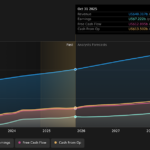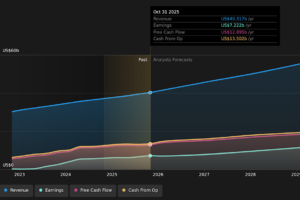
Your student loans may haunt you even after you’ve paid them off.
That’s because they’re having a major impact on how much people save for retirement, according to a focus group and survey of more than 1,800 people released by the MIT AgeLab and financial institution TIAA. Nearly three in four (73%) of those with student loan debt said they are putting off maximizing their retirement savings until they repay their debt. And more than one in four (26%) who aren’t saving for retirement at all say it’s because of their student loans.
It’s not just young people who are skimping on retirement savings because of student loans either: 43% of parents and grandparents who took out loans for children and grandchildren say they will increase retirement savings only when the student loan is paid off.
The issue, of course, is that delaying retirement savings could have an irreparable impact on your financial future.
“It’s hard to capture savings if you’re saddled with student loan debt, but it’s essential,” says Jennifer E. Myers, the president of SageVest Wealth Management. “Your student loans might not be paid off for decades. Waiting that long to begin saving for retirement has the potential of making retirement unattainable.”
Of course, for many this feels impossible, but financial planners say it’s essential to try. And Kimberly Foss, the president and founder of Empyrion Wealth Management, says that “most people can” save for retirement and pay off student loan debts “whether they realize it or not.” Here’s how to do it:
Free up more money to repay loans and contribute to retirement: “Virtually everyone has something they can carve back or out of their budget to capture savings. Forego the latte, cut back on the cable, eat out less, etc.,” says Myers. On the flip side, look at earning some extra money with a part-time job. All of this extra money can contribute to your debts and retirement savings.
Always pay at least the minimum on student loans: “You should of course make timely payments on your student loan debt, and as long as you’re making your minimum payments on time, you’re making steady progress, just like with a home mortgage,” says Foss. Adds Betterment senior financial planner Nick Holeman: “Not doing so can lead to penalties, extra interest, and higher finance charges, in addition to ruining your credit score.”
At least get the employer match on your 401(k) — and try to save more: “If your employer offers a company match, don’t be foolish by leaving it on the table,” says Myers. Of course, you’ll need to do more than that to be fully saved for retirement, she adds, but to start, if you feel overwhelmed, at least capture the match. The reason: “Any match is free money, and that return beats out many investment alternatives,” says Holeman.
And leaving that money on the table is costly in this way too: “Take for example a 25-year-old employee making $35k whose employer matches 100% on 6% of compensation. If the employee defers 3% instead of the 6% needed to receive the full match, the amount of missed employer match (with earnings growth) projected out to 65 would be over $250,000,” explains Joleen Workman, vice president of customer care at Principal — who’s assuming a 6% and annual salary growth of 3%).
Increase retirement contributions when you get a pay raise — and whenever else when you can. “The best time to capture more savings is when you get a pay increase,” says Myers. “If you know when that happens mark your calendar now with a big reminder to capture more savings. Discipline yourself to allocate at least half of every raise to savings until you know you’re on a solid financial track.”
Remember this about saving for retirement: “One important benefit to a 401(k) plan that people often disregard is the deferrals into the plan can be pretax. Therefore, the impact to the paycheck isn’t a 1:1 ratio. If someone defers an extra $100, the pretax increase into the 401(k) plan is $100, but the actual impact to their paycheck would be less (for example $75 impact to the paycheck if using 25% tax bracket),” explains Workman. “Understanding true impact to an employee’s paycheck can be an overlooked part of getting comfortable both paying down student loan debt and saving for retirement.”










